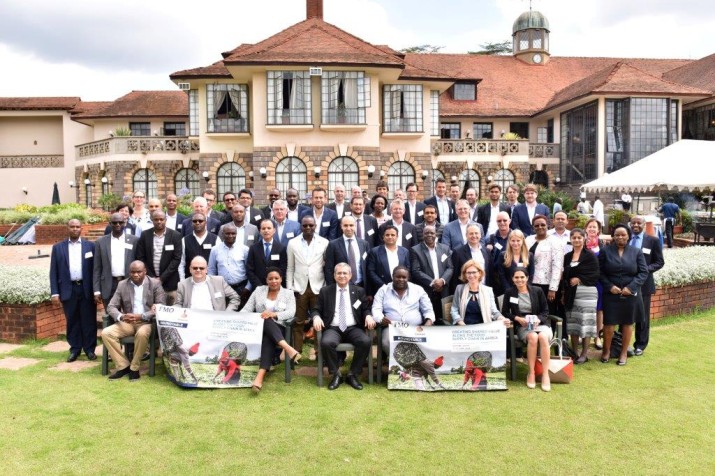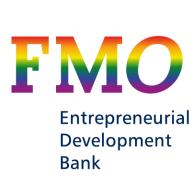The opportunities that the agri-food sector in Africa presents, is high on the radar of local banks. But the challenges to finance agribusiness and smallholder farmers are equally great, limiting banks’ growth in this market.
That is why Arise CEO Deepak Malik stressed the investment company’s commitment to invest in its investee banks expertise to serve the agrifood sector at a roundtable for these banks organized by FMO and Rabobank in Nairobi in June 2018.
“We aim to create stable, sustainable, local banks to increase access to finance. We encourage financing agriculture with a vision of unlocking the economic growth potential of Africa”, Malik said in his keynote address at this event. FMO, Rabobank, NorFinance and Norfund, the Norwegian development bank, established Arise in 2016 to manage their combined investments in financial institutions in Sub-Saharan Africa.
We aim to create stable, sustainable, local banks to increase access to finance. We encourage financing agriculture with a vision of unlocking the economic growth potential of Africa
Agriculture is the region’s most important sector, employing the vast majority of the population, but its rate of growth lags far behind its potential. Banks, SME investors and multinational corporations all see the opportunity to invest in rural agribusiness, but the risks are high and the returns are often not very attractive. Poor infrastructure, weak land rights, intervening governments, insufficient regulations, market fragmentation, limited access to markets and inadequate policies to stimulate the agricultural sector are some of the main constraints when investing in agribusinesses and farmers.
Banks are naturally cautious when it comes to investing in agriculture as a local government can suddenly change market conditions by taking policy decisions like banning the export of unprocessed coffee beans”, said Hans Boogaard, acting director, FMO Agribusiness, Food & Water following the roundtable in Nairobi. “We want to support our partner banks who are committed to agrifood financing by sharing knowledge and, where needed, risk sharing.” Credit guarantee schemes are also a possibility to guarantee a bank’s agrifood portfolio and make the risks involved more acceptable for the bank.
Banks are naturally cautious when it comes to investing in agriculture
Arise offers its partner banks an excellent platform to exchange experiences of different business models and ideas about how to overcome some of the key obstacles to increasing access to finance for agribusinesses and smallholder farmers. One of the challenges banks and large multinationals face is how to connect with this smallholder group. No bank or large multinational company has yet found the magic bullet to ‘close the last mile’ to the smallholders, but all agree that financing them must be an integral part of a broader array of the provision of services to farmers in Sub-Saharan Africa.
Equity Bank in Kenya presented an interesting model to make smallholder farmers bankable through their Foundation first, before migrating the medium-sized farms and smallholder farmers to core banking activities. Equity Group Foundation (EGF), which is separate from the bank, focuses both on the plight of smallholder farmers as well as medium-sized farms. They are generally too large for microfinance and smallholder programmes, yet still not big enough to compete with commercial farms and to secure affordable working and investment capital.
Through different programmes in partnership with donors, such as the Embassy of the Kingdom of the Netherlands in Nairobi, EGF supports small and medium-sized farmers by helping them increase their production and business capacities, as well as their access to technology, credit, and markets. Since 2008, EGF has trained over 95,000 smallholder farmers on farm and business development and given more than 215,000 smallholder farmers access to credit totalling over Ksh 5.4 billion (almost € 46 million). Nearly 500,000 smallholder farmers have been lifted from subsistence to commercial farming.



